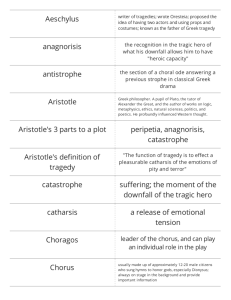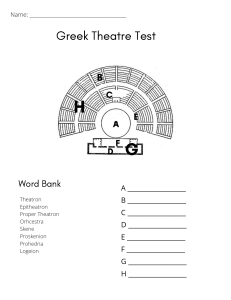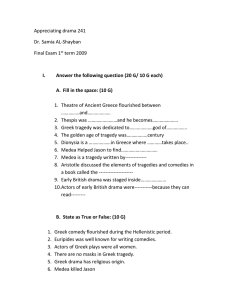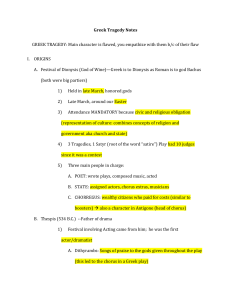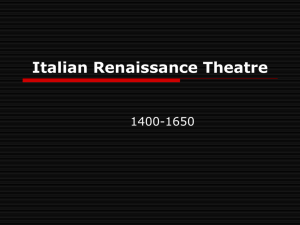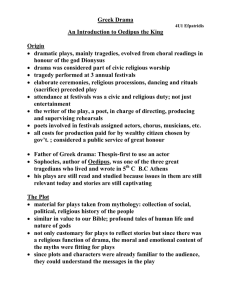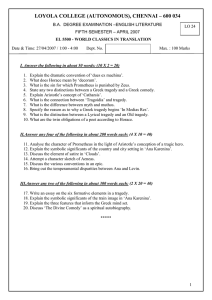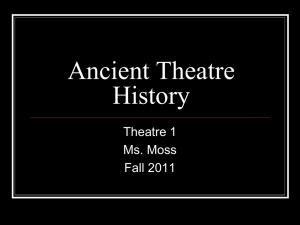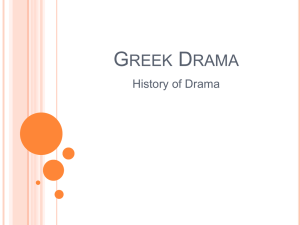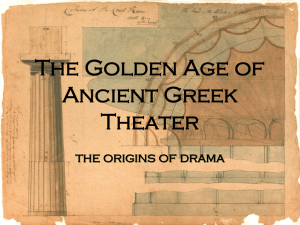Introduction to Drama
advertisement
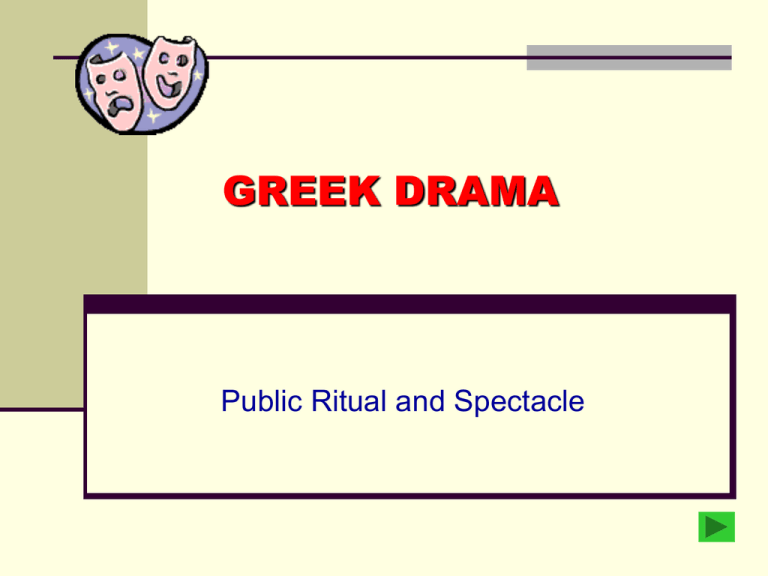
GREEK DRAMA Public Ritual and Spectacle from … SCHOLES ROMANCE TRAGEDY COMEDY SATIRE WHAT IS DRAMA? Greek meaning: “to do” or “to act” = poetry + prose + fictional narrative No narrator to offer meaning or interpretation (limited views Performance = play / text = play No two productions are the same performance is dynamic THE GREEKS Drama’s roots in ancient religious festivals Stories about the gods (ex: Dionysius) Theatre festival: full day event with critical audiences. Thesis (“Thespians”) wins play competition in 534 BCE Tragedy … from tragos = “goat” tragedy =“goat song” THE GREEKS cont’d Only 3 speaking actors on stage at once protagonist, deuteragonist, tritagonist 3 unities: time, place, action 24 hours 1 setting 1 plot: no comic relief or sub-plot Chorus reminds us that men do not have complete control Sometimes strophe and antistrophe Choryphaeus chorus leader who delivers lines of spoken verse on behalf of the chorus as a whole THE GREEKS Aristotle on tragedy drama should “imitate nature” Hamartia (hero’s error of judgement due to ignorance or moral shortcoming) leads to Peripeteia (reversal of fortune) leads to Anagnorisis (moment of self recognition) leads to Catharsis (audience purgation of emotions: “pity and fear”) THE GREEK STAGE Theatres (usually) situated on a hill (amphitheatre) outdoors Skene (“scene”)= 1-storey structure used to store costumes and for entrances/exits Scenes painted on the side Orchestra = Circular space (apprx 85 ‘ diameter) used as main acting space THE GREEK STAGE FINAL THOUGHTS… Public spectacle and ritual The stage becomes a place where our fears, anxieties and desires are acted out Psychological functionality: theatre as therapy Theatre critical: vehicle for social and political commentary

